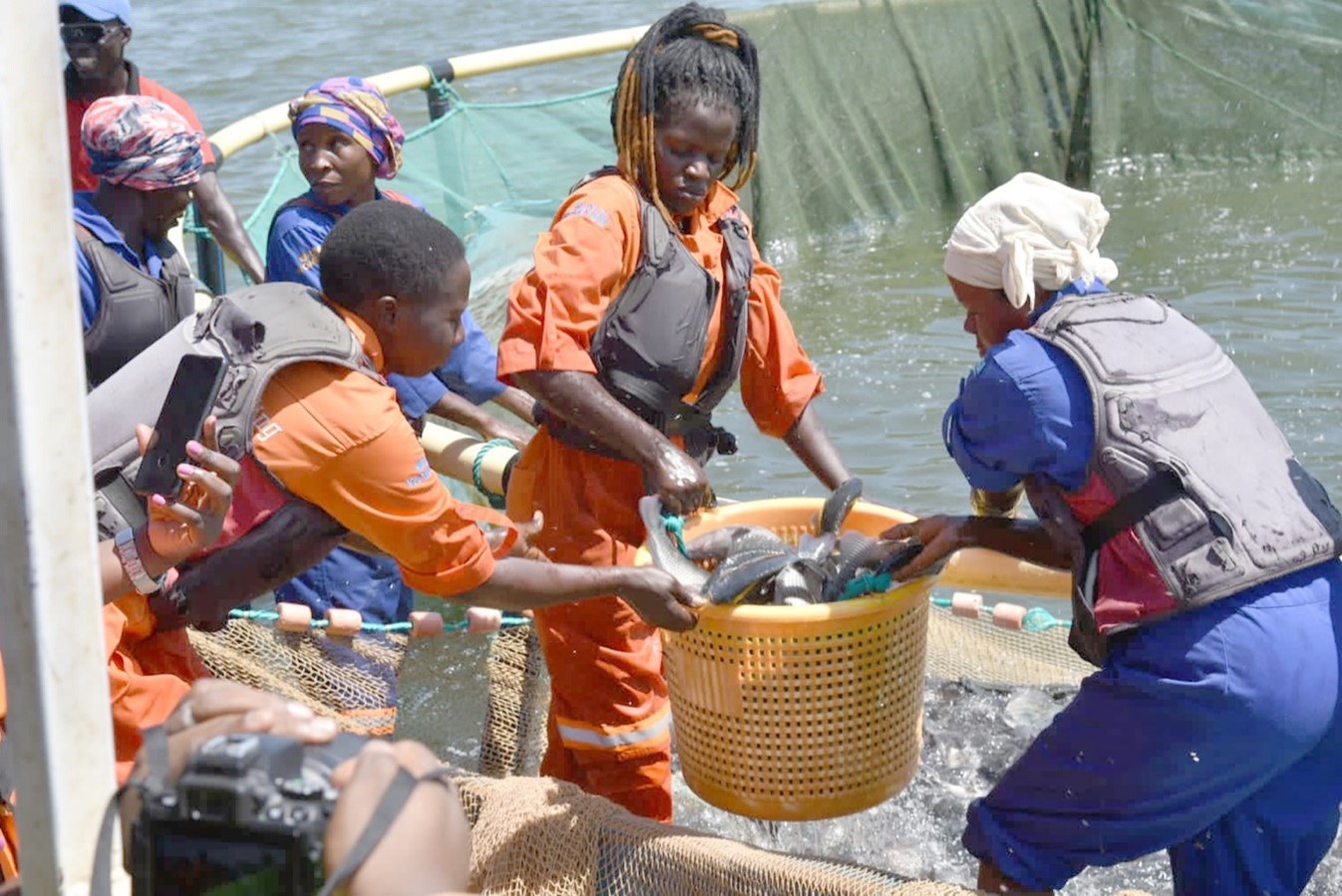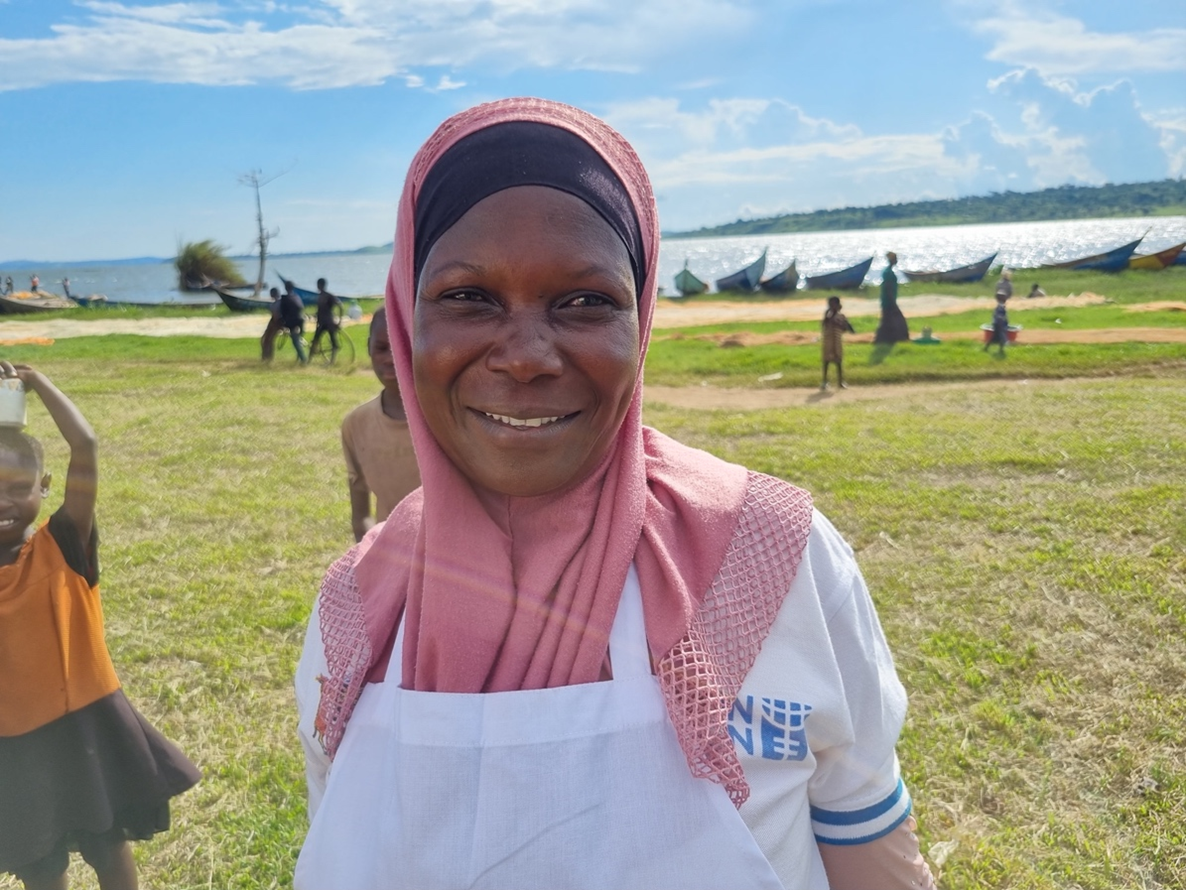Women breaking barriers in the fish farming industry in Uganda.
Date:

Women in Bugiri District in Eastern Uganda are breaking barriers by taking on roles in fields traditionally dominated by men. While fish farming was reserved for men in Uganda, the women have broken the taboo and mastered the art of fishing, enabling them to etch a decent livelihood.
Launched in 2019, the Women's Economic Empowerment Programme aims to improve women’s income security, decent work, and economic autonomy by 2025. With funding from the Government of Sweden and Standard Bank, UN Women partnered with the Bugiri District Local Government to support rural women to engage in fish farming on Lake Victoria where the women have established 28 cages of Tilapia fish. Involving women in the fish farming industry has created jobs and improved the standards of living of thousands in the district and their families.
Rose Nakimuli, a resident of Bugiri, is one of the fisherwomen on the project. “When I was selected to be trained in fish farming, I embraced the opportunity. I didn’t mind what society would think of me. I approached it as a job. The UN Women project ensured that we learned about aquaculture, how to swim, and how to fish, and I have now mastered the skills to feed and harvest fish which I am doing well”, Nakimuli said at a recent field visit. She is one of the 1400 women whose capacity was built in fish farming.
Amina Nakiranda, the project’s production manager, explained that the program taught them how to fish and gave them essential business management skills. “Before this WEE program, many of us ran tiny businesses selling fresh produce or silverfish in the marketplaces. Our businesses were really struggling, and we would approach banks, cooperatives, and village savings to lend us money. But that wouldn’t end well because the businesses would not make a profit and we’d end up in debt. Through the training provided in this project we learned how to run our business from start to finish,” she said.

The Cage Fish project strengthened the capacity of the women in governance, financial literacy, and the whole fish value chain. The women have now registered a private company “Women Economic Empowerment Bugiri (WEEB).
Ms. Immaculate Were, the CEO of WEEB observed that “Although 85% of the beneficiaries are illiterate, the women are now specialized in different areas including feeding, harvesting, preservation, marketing and trading”, adding “Once a woman gets wealthy, that’s wealth for the whole nation”.
Gender relations have improved in their homes as women now earn an income and contribute to the family budget. “The project has reduced gender-based violence because we no longer sit at home and beg everything from our husbands. We are no longer burdens, the project has empowered us” said Judith, a member of the executive board of WEEB.